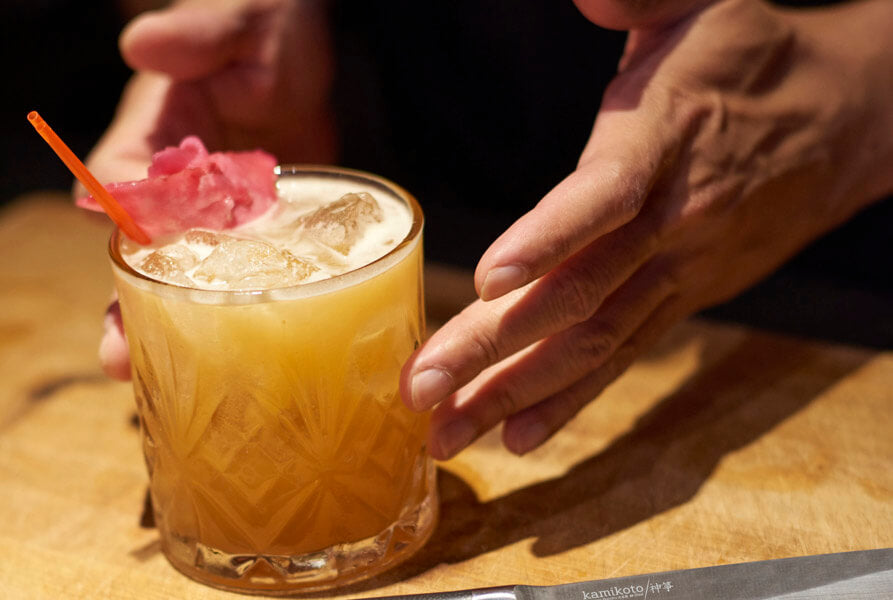
Making the perfect drink is an art form in itself and requires years of practice, skill and knowledge. To understand the subtle differences between a bartender and mixologist, it is important to understand the latter knows not only which ingredients are used in an alcoholic recipe but why.
What is a Mixologist?
The term ‘mixologist’ refers to a professional well versed in the culinary art of making cocktails and mixed alcoholic drinks. A mixologist is also a bartender but with added knowledge concerning the history of the ingredients they use, plus an ability to understand flavor profiles to develop a palate-pleasing drink.
While many view the word ‘mixologist’ as being a relatively new phenomenon it does, in fact, date back to the late-1800’s. Printed cocktail guides produced during this era referred to their bartenders as mixologists, particularly those working in higher class bars and restaurants.
New York bartender, Jerry P. Thomas is often credited as being the ‘father of American mixology’. He achieved fame in the mid-1800’s creating unique cocktail combinations for his clientele whilst entertaining them with his flair for showmanship and bottle spinning tricks.
What Separates a Mixologist from a Bartender?
While the terms ‘bartender’ and ‘mixologist’ are often interchanged, there are a few differences. All mixologists are bartenders, but not all bartenders possess the intricate knowledge required to be referred to as mixologists.
A professionally mixologist had undergone extensive training about the ingredients they use. They have also studied and committed to memory most major classic drink and cocktail combinations, whilst training their palate to understand what makes a good mixed drink. Furthermore, they enjoy creating new concoctions to push ingredient boundaries ever further.
Another key difference between the two is a mixologist creates drink components before customers arrive, for example flavor infusions. Bartenders normally arrive in time to set up the bar and then serve drinks to customers using components previously made by the mixologist.
What way to think of the difference is to liken a mixologist to an executive chef whereas a bartender is a line cook. As such, they often command higher salaries, obtain extra tips and work in five star establishments.
Note: in many bars and restaurants a mixologist and bartender are one and the same.
What Skills does a Mixologst Need?
- Has a culinary approach
- Creates drink menu according to ingredient seasonality and style of establishment
- Prepares individual drink components before service (infusions, juices, syrups etc)
- Spends hours developing and testing new drinks and refining current ones
- Focused on the craft of a drink aspiring to create one that is memorable
- Deep understanding of ingredients used - knows why a certain one is used in a recipe
- Responsible for sourcing and stocking premium products and other bar supplies
- Well-organized
- Has an extensive repertoire of slicing techniques to enable them to create curated garnishes
- Expands the definition of a cocktail, seeking out new possibilities concerning what they can potentially be
Bartender skills and tasks
- Excellent communicator
- Strong commitment to service (which encourages repeat business)
- Focused on creating a memorable night for patrons, both in service and drink
- Know what ingredients are used in a recipe
- Often creates drinks based on mixologist recipe, utilizing pre-prepared ingredients
- Speedy to be able to serve multiple customers
- Often ensures bar is fully stocked before service (ingredients, glassware, ice etc)
- May set up bar and clean up after closing
- Processes payments
- Checks customers’ ID
What Training Does a Mixologist Need?
The path to becoming a mixologist can vary widely. Some bartenders begin by learning the tools of their trade on the job straight out of high school, working their way up to running the bar. If they are passionate about creating and mixing drinks, they may then opt do further training by undertaking a professional mixology course.
Others possess the burning desire to be a mixologist from the outset so choose to attend a professional bartending school. Here, they learn the fundamentals of bartending along with gaining alcohol certification about how to serve alcohol responsibly and safely.
The next step is to undertake a professional mixology course where they learn:
- About alcohol ingredients and why certain liquors mix well with others
- How to prepare garnishes using the right slicing techniques
- A repertoire of classic and on-trend cocktails (sometimes up to 125 unique drinks)
- How to develop their own palate to be able to prepare signature concoctions
What Tools Does a Mixologist Need?
- Set of measures – to accurately measure liquid
- Set of bar spoons – to stir drinks, some feature a ‘hammer’ on one end to muddle ingredients
- Muddler – to press ingredients against glass to imbue flavor
- Shaker – a few different sizes to shake cocktails and mix other drinks
- Set of different sized strainers – to create a smooth drink finish
- Set of professional knives including a paring knife
- Juicer
- Blender
- Citrus peeler
- Pourers for alcohol bottles
- Bottle opener/corkscrew,
- Ice tools - tray, moulds, bucket, pick, tongs, crushers, ice scoop
- Full set of glassware – from tumblers to shot glasses to an assortment of cocktail glasses
Commonly Used Ingredients by Mixologists
- Fresh fruits & fruit juice (from the humble citrus all the way through to more exotic offerings)
- Fresh herbs (examples might be mint, lemongrass or basil)
- Full range of spirits (at minimum vodka, gin, rum, tequila, bourbon, whisky, brandy)
- Full range of liqueurs (triple sec, maraschino, coffee, crème de cassis, crème de cacao)
- Flavored cordials
- Bitters
- Tonic & soda
- Homemade simple syrup
- Grenadine
- Ice
- Salt and pepper
As is evident, the distinction between a bartender and mixologist - while appearing to be quite minor - is nonetheless there. Therefore, if you aspire to a career creating alcoholic drinks that are worthy of acclaim, it is worth taking the time to engage in formal training, just like any professional chef. It will set you on the right path to making the leap from bartender to mixologist and enhancing your career prospects in the process exponentially.


